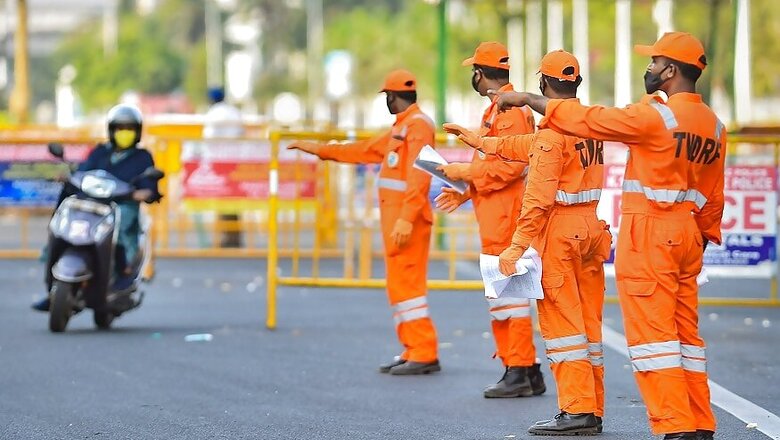
views
Chennai: Probably for the longest time, Tamil Nadu remained untouched by the sweep of the novel coronavirus pandemic.
In early-to-mid February, even as Bengaluru and Hyderabad reported cases and Delhi was threatening to turn into a hotspot, Chennai was a serene and an insulated metropolis—the epitome of 'Keep Calm and Be a Chennaiite'.
In fact, meme nation was on a rampage in its bid to link the absence of cases in Tamil Nadu's capital to its hot and humid weather. In just weeks, the tables have turned.
Tamil Nadu’s first case was in the first week of March: a Kanchipuram man who flew in from Oman. The middle-aged traveller was the first to breach the southern fortress and was followed by a barber from Uttar Pradesh who took a train to Tamil Nadu. Soon after, cases trickled in one by one—all travellers who have been isolated. In fact, the state health minister referred to Tamil Nadu’s COVID-19 victims as “imported cases”, understandably referring to extraneous contraction to underscore that there was no community spread.
As far back as mid-March, Tamil Nadu had recorded a positive in a foreigner (a Thai national) in Erode. Amid media reports that raised questions over who these foreign nationals were, and what was their purpose of travelling about the country, the state government maintained a stoic calm that all was done to isolate people probably carrying the virus.
The tipping point for Tamil Nadu was during the time the returnees from the Tablighi Jamaat conference in Delhi's Nizamuddin started testing positive.
According to a senior government official in Tamil Nadu aware of the mission to trace the attendees of the religious conference, the action to rapidly trace and isolate the returnees of the conference only began “after the national lockdown”. The tracing process received a big boost much later by March-end after chief minister EK Palaniswami extended an open appeal to the people who had been to the conference to declare their travel and seek treatment. Palaniswami had mentioned that close to 1,500 people had travelled to the conference, a number derived from “a list received from Delhi”, meaning sources at the Centre and also from conversations of the Jamaat.
A senior bureaucrat explained to CNN-News 18 on condition of anonymity that the complex process involved an inter-departmental collaboration to trace those who had been to the Nizamuddin conference. Officers from the health, revenue and police departments went about reconciling contacts traced with data about returnees from the Tablighi Jamaat meet. By itself, the reconciliation process was a painstaking one.
The government compartmentalised the returnees from Delhi into four sections: foreigners, basically international tourists who attended the conference and later came to Tamil Nadu and this made up only a handful. Secondly, Indian travellers who went abroad for religious conferences and returned after the events were called off in view of the coronavirus disease. The third category included people from other states who attended the Tablighi Jamaat conference in Delhi but came back to Tamil Nadu. The fourth category was people from Tamil Nadu who had gone to Delhi to attend the event and this category was the most numerous.
"We traced 1,480 people so far who are linked to a particular source. We came to the number after reconciliation between the health department, the revenue department and the police department," said state health secretary Beela Rajesh to reporters on Wednesday
With the process of mapping all the Tablighi returnees almost over, the state government needs to redouble focus on the primary contacts of the newly announced cases. “Tablighi or not, any COVID-19 positive case is likely to spread it to his or her primary contacts. With more tests, we are closing in on this disease,” said a bureaucrat aware of the government’s action.
Despite the quick action effort of the Tamil Nadu government, the state has recorded 738 positive cases as of Wednesday. The rise in numbers has been meteoric over the past two weeks. With the arrival of rapid test kits on Thursday, Tamil Nadu will net more cases in the coming weeks.


















Comments
0 comment